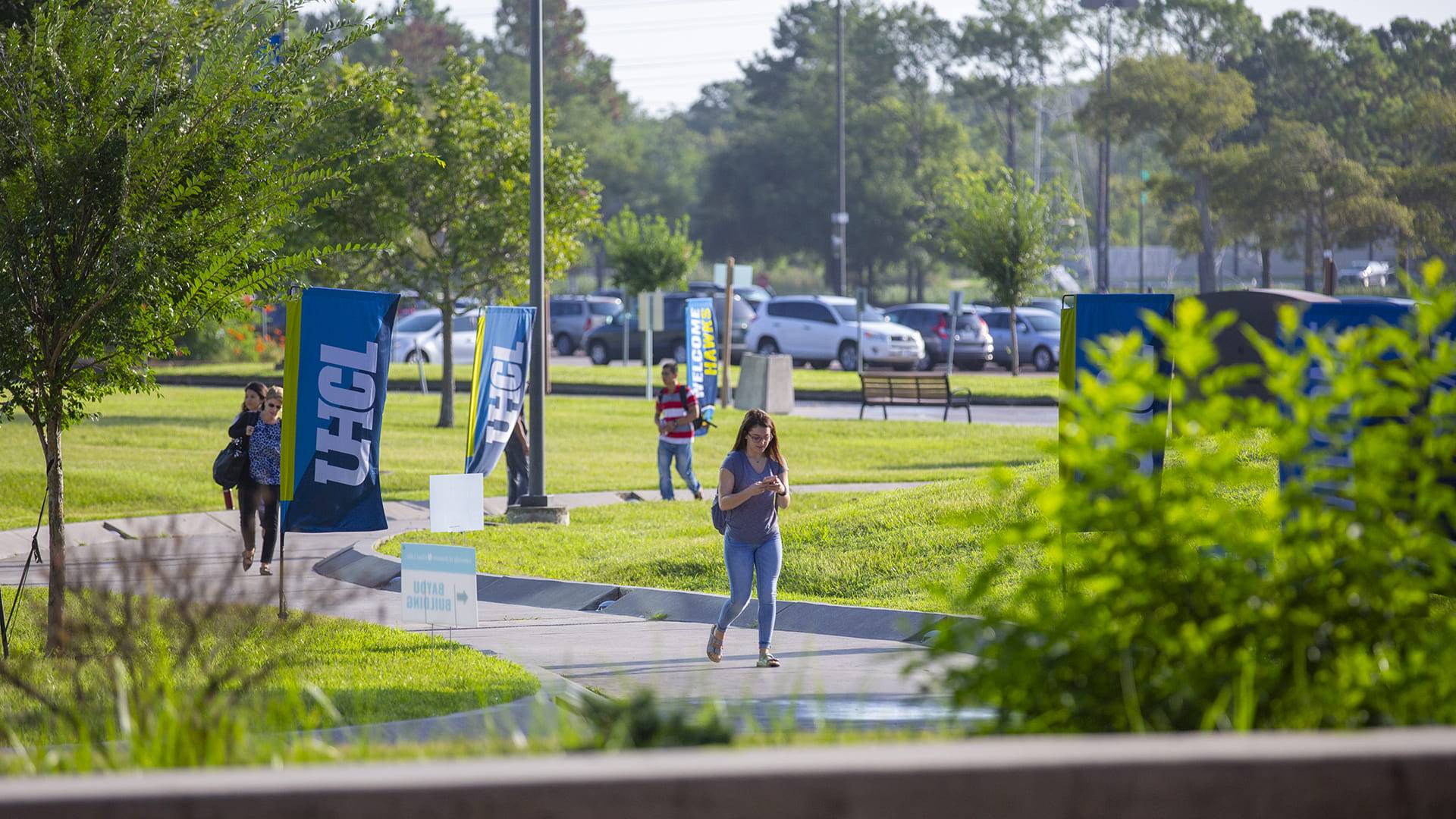Self-care advice for those grieving at home alone during quarantine
May 12, 2020 | UHCL Staff
Of all the ways the COVID-19 virus pandemic has upended the conventions of normal
life, perhaps the most painful of all is the hospital-mandated separation of sick
patients from their family members and friends. Hospitals around the world have barred
visitors in an attempt to help contain the spread. Emily Fessler, associate professor of marriage and family therapy at University of Houston-Clear Lake, describes it as a slow burn of grief and loss
on a global scale.
“Any type of loss triggers grief, but what makes it tricky during this time is that
we are going through this loss across the globe, and the world we once knew is not
necessarily the one we are going to return to in the way we are hoping,” Fessler said.
“There’s the grief and loss going on because of this in the whole world, and then
there’s all the rest of the grief and loss that goes along with just being human.”
Across societies and cultures, she said, we have come up with traditions and rituals
to help us manage the grief when we lose a loved one, and the honor the person who
has passed. “Now, the way we do those things is totally undermined because of the
quarantine and social distancing,” she said. “As a mental health professional, I know
people go through a period of anticipatory grief, whether someone is dying of COVID-19
or something else. You know they’re dying,” she said. “You feel guilty because you
can’t be there with them in their final moments, which means you can’t get the closure
you want and need. You feel isolated, because at a time like that, you’re typically
getting together with your loved ones, but now it’s not possible.”
But for families of virus patients, Fessler said, they didn’t get a chance to go through
anticipatory grief. “There’s just trauma coming out of nowhere, and it exacerbates
everything,” she said. “There’s no script for how to go through this. No one has been
in this situation before.”
The first thing Fessler recommends, no matter how difficult it seems, is to practice
self-care. “It seems like a monumental task in this situation, but take some time
to focus on the basics,” she said. “Make sure you are hydrated and that you’re eating
and sleeping. Don’t put too much pressure on yourself to get things done or maintain
normalcy in the face of a crisis. There’s a big distinction between working from home,
and working from home during a global pandemic. It’s not the same.”
Although the virus has decimated our normal support systems, Fessler said it’s important
to reach out to family. “Use the phone or FaceTime or Zoom, but definitely reach out,”
she said. “It might be great to go old school and write letters and memorialize your
thoughts and feelings in a way that could become a keepsake. Writing letters is very
cathartic and people don’t do it very often anymore. You can give it to people when
the quarantine is over.”
Above all, Fessler said that despite the fact that most doctors’ offices and clinics
are closed, there is no need to suffer alone. “There are lots of ways to find free
or reduced-fee care. If you’re home and you’re suffering, there are many telehealth
options are out there for professional support,” she said.
Learn more about UHCL’s Family Therapy program online.
About the Author:
Recent entries by
October 18 2022
Better technology transforms campus safety: Police Chief demonstrates SafeZone to students
October 14 2022
Student's skill with drones takes chicken turtle research to new heights
October 11 2022
Planting event to help UHCL restore native plants to campus, support environmental sustainability







